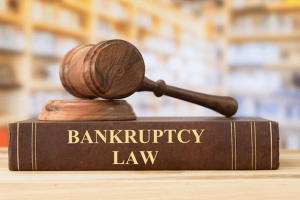
Sep 10, 2021
Submitted by:
Barry Roy
Rabinowitz, Lubetkin & Tully
293 Eisenhower Avenue, Suite 100, Livingston NJ
(973) 597-9100
broy@rltlawfirm.com
In 2019, Congress enacted the Small Business Reorganization Act (or the SBRA), which provides for a new subchapter v in chapter 11 of the Bankruptcy Code. As its name suggests, the Act applies to small business debtors.
What is a “small business debtor”? Generally speaking, a small business debtor would mean generally a person – meaning, an individual, partnership, or corporation, but generally not a governmental unit – engaged in commercial or business activities – that has aggregate noncontingent, liquidated, secured and unsecured debts as of the date of the filing of the bankruptcy petition in an amount not more than $2,725,625. This definition remains effective, except that the CARES Act – short for the Coronavirus Aid, Relief, and Economic Security Act, passed by Congress at the beginning of the pandemic – temporarily bumps the debt limit up to $7.5 million. Barring an extension, this temporary amendment will terminate on March 27, 2022.
So, If a Business Qualifies as a Small Business Debtor Under the Act, What Does the Act actually do?
In short, the Act provides special rules that make it easier for a small business debtor to confirm a chapter 11 plan of reorganization. For instance, unless the court orders otherwise, a creditors’ committee – from which an objection to confirmation can often be expected – is not appointed in a small business case.
Second — a small business debtor is not required to file a disclosure statement; instead, it need only provide certain material information in the plan itself.
Third — “exclusivity,” that is, the exclusive period of time in which only the chapter 11 debtor and no one else can propose a plan of reorganization, never expires in a small business case. Be that as it may, a small business debtor must propose a plan within 90 days of the bankruptcy filing.
Fourth — unlike a conventional chapter 11 debtor, which must attract at least one consenting class of impaired creditors in order to “cram down” a plan of reorganization over objecting unsecured creditors, a small business debtor can cramdown a chapter 11 plan even when no creditor consents. Also, perhaps more importantly for the owners of the business, whereas the absolute priority rule may wipe out the owners’ equity in the business if a consensual plan cannot be confirmed in a conventional chapter 11 case, the absolute priority rule does not apply in a small business case, and thus, the owners in a small business case can retain their ownership in the business, provided the owners – similar to a chapter 13 debtor – commit to contributing projected disposable income – of the business or the individual, depending on the case – over the course of the plan.
In the case of a corporate debtor, “disposable income” means profits; in the case of an individual debtor, it means net income after reasonable and necessary expenses. Therefore, unlike the owners of a conventional chapter 11 debtor’s business, the owners of a small business debtor do not have to make a contribution of “new value” in order to retain their ownership interest in the business when an impaired class objects to the plan. That said, to encourage small business debtors to reach consensual resolution of the plan, the Act provides that a small business debtor obtains a discharge upon plan confirmation, rather than later upon plan completion, if it is able to avoid cramdown.
Fifth — a small business debtor can cram down or “lien strip” a mortgage that was granted on a borrower’s home – either directly or by guarantee of a loan to the business – to secure the borrower’s liability on a business loan, provided the debt was not used primarily to obtain the real property and was used primarily in connection with the business.
Finally — a small business debtor need not pay its counsel fees on the effective date of the plan; instead, it can pay them over the course of the chapter 11 plan.
However…
Certain caveats apply, however. For instance, although a small business debtor is a “debtor-in-possession” like a conventional chapter 11 debtor, the Act provides for the appointment of a trustee, similar to a trustee appointed in a chapter 13 case. In a small business case, the trustee performs functions such as examining proofs of claim, opposing the discharge if appropriate, furnishing information to creditors, appearing and participating in any hearing on confirmation of a chapter 11 plan or sale of estate property, and ensuring that the debtor makes timely payments required under the plan. Also, a small business debtor, in seeking to confirm a plan of reorganization, must still prove that the plan is feasible and must still satisfy the best interests tests, which requires the debtor to show that an objecting creditor will receive at least as much under the plan as that creditor would have received in a liquidation under chapter 7.
Those conditions aside, the Act offers a faster, easier, and less expensive path for a small business debtor to confirm a plan of reorganization and successfully emerge from chapter 11. And because many enterprises are small businesses within the meaning of this definition, the Act is expected to have a far-reaching impact on business bankruptcies.
If you have any questions regarding the above, please do not hesitate to contact any of our attorneys at (973) 597-9100.
